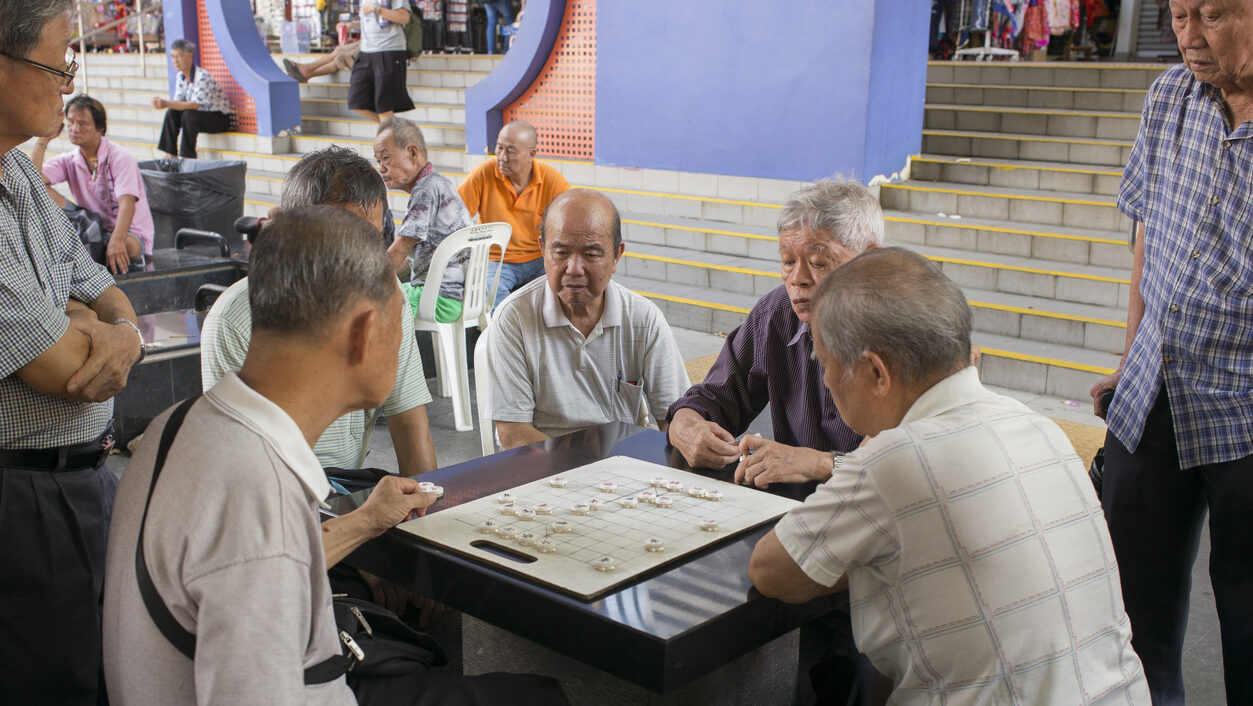Ageing in networks: The unbounded geographies of non-migrant and migrant older adults
May 2, 2025
As Singapore’s population grows older, national efforts like the Age Well SG programme aim to expand active ageing centres and bring social activities closer to seniors’ homes. Amid these developments, older immigrants often remain overlooked despite their past contributions and continued roles in caregiving and community life.
In ‘Ageing in networks: The unbounded geographies of non-migrant and migrant older adults’ (Progress in Human Geography, 2024), Professor Elaine Lynn-Ee Ho (NUS Geography and NUS Asia Research Institute), Associate Professor Vincent Chua (NUS Sociology and Anthropology), and Associate Professor Chen-Chieh Feng (NUS Geography) propose the concept of ‘ageing in networks’ to show how older adults form and maintain social ties not just within their immediate communities, but also across broader geographical spaces, such as extra-local, transnational and virtual spaces. Recently referenced in the Straits Times Op-Ed, ‘Seniors are taking the kampung spirit beyond the neighbourhood’ (The Straits Times, April 2025), which was also written by Prof Ho, A/P Chua, and A/P Feng, the study highlights the importance of rethinking ageing as a networked and relational experience rather than as one limited to neighbourhood boundaries.
The authors contend that the experiences of non-migrant and migrant older adults are more interconnected than often presumed. Both groups form and maintain social networks that stretch across local, extra-local, transnational, and even virtual spaces. These social ties are critical not just for emotional support but also for navigating care infrastructures, intergenerational responsibilities, and social belonging. The ‘ageing in networks’ approach thus challenges the bounded geographies of ‘ageing in place’, and advocates for policies that address the relational, spatial, and technological dimensions of ageing.
Migrant seniors, in particular, may face compounded precarity when ageing abroad due to linguistic barriers, short-term visas, or the lack of formal support systems. Nonetheless, the researchers highlight the agency of older migrants as active curators of communities through digital technologies, reciprocal care networks, and mobility across borders. For example, grandparenting migrants who travel on short-term visas often build informal support systems with other caregivers, using WhatsApp groups to coordinate outings or access work opportunities. Contrary to stereotypes of older adults as digitally disconnected, the study illustrates how both migrant and non-migrant seniors engage in ‘digital kinning’ (to address social support), ‘digital homing’ (to create a sense of belonging), and ‘digital place-making’ to maintain ties across space and time. Whether through Zoom calls, livestreams, or location-tracking apps, older adults can co-construct social worlds that are deterritorialised yet emotionally resonant.
Ultimately, ‘ageing in networks’ shows that integration is not a one-time event but an evolving process that spans the life-course. As older adults adapt to new life stages such as frailty, widowhood, retirement, or caregiving, they may embed more deeply into the receiving society or strengthen transnational ties to their homelands. Importantly, a future-forward approach to ageing must incorporate inclusive and mobile social protection systems, culturally sensitive care infrastructures, and digital accessibility. Afterall, the kampung spirit is no longer confined to the HDB void deck — it now stretches across continents, platforms, and generations.
Read the article here.
Read the Straits Times Op-Ed here.

